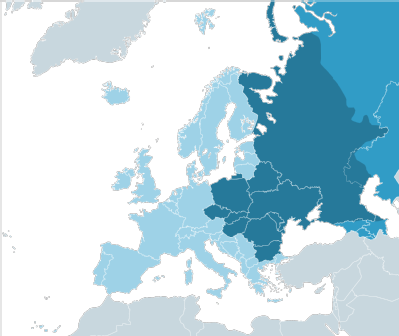Withdrawn Module: Eastern Europe in Crisis (HI349)
 Please note that this module was available
Please note that this module was available
until 2007, but has since been
withdrawn and is no longer available.
Tutor: Professor Robin Okey
This final-year undergraduate Special Subject module looks at the often contrasting experiences of two leading East European countries (Czechoslovakia and Poland) at the point of their most dramatic intersection with wider international events. It can therefore interest either students primarily interested in the East European zone, who may have already taken the module 'Eastern Europe since 1918’, or those initially attracted to the issues posed of Nazism, Cold War and communism. In either case no previous knowledge of Polish, Czechoslovak or East European history is required. A language requirement can be relatively easily acquitted in German, but in French availability of material restricts the number of possible topics.
The module aims to familiarise students with the goals of Nazi Germany, the Soviet Union and the liberal democratic West in the area studied, and with the markedly different strategies pursued by Czechs and Poles in the face of these, in which the former were readier to seek accommodation with their powerful neighbours than the latter. Themes in the first term, after background seminars introducing the traditions and mentalities of the two countries, include the coherence or otherwise of Nazi racial plans for the area; patterns of native resistance and collaboration; Czech and Polish diplomacy in exile; and the 1944 Warsaw rising (the Jewish holocaust is not part of the module, though students have written Long Essays on Polish Jewish themes in the past). The second term’s work covers the part played by the area in the wartime and postwar diplomacy of the great powers, leading to Cold War, and the contrasting paths to power of Polish and Czechoslovak communists, culminating in the 'Prague coup’ of February 1948. Wide-ranging documentation, including party and state papers, private and diplomatic correspondence, diaries, memoirs, speeches and Nuremberg Trial records enable students to second-guess the secondary works they also use and to come to their own conclusions on the motives and skill of crucial players on the regional and world stage at this traumatic time.
